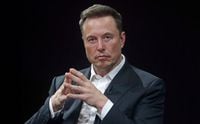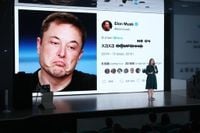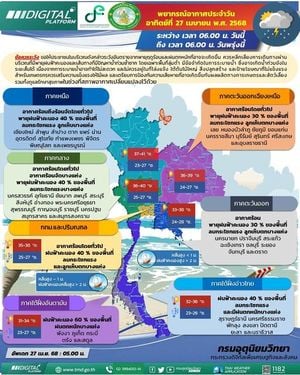Elon Musk's popularity has taken a significant hit, now standing at -11 points, according to recent polls. This decline is stark compared to earlier this year when his rating was at -3, and it reached a high of +29 in 2016. The downward trend in Musk's approval comes amid his controversial actions as head of the Department of Government Efficiency (DOGE), where he implemented substantial budget cuts that have drawn criticism.
His open support for far-right factions has also sparked public outrage. Notably, during Donald Trump's inauguration, Musk was seen performing Nazi salutes, an act that has led to widespread condemnation. In response to Musk's actions, a movement called "Tesla Takedown" has emerged in the United States, with thousands of demonstrators protesting peacefully outside Tesla dealer centers.
As Tesla faces a decline in sales globally, some investors are voicing dissatisfaction with Musk's leadership style and his apparent lack of focus on the company's growth. The situation worsened after the defeat of Brad Shimel, a candidate Musk actively supported during the Wisconsin Supreme Court elections. Shimel lost to liberal candidate Syuzen Krouford, despite Musk's attempts to sway the election, including distributing checks totaling $1 million to voters. This loss has only intensified public discontent towards Musk.
Nate Silver, a prominent political analyst, noted that Musk's declining popularity could pose a political problem for Trump as well. Trump himself is also experiencing a drop in approval ratings, particularly following the unsuccessful introduction of global tariffs. As Musk remains in his position, his low approval ratings could become a burden for Trump, whose popularity is now reportedly lower than that of the billionaire.
The negative sentiment surrounding Musk is further highlighted by a new poll from the University of Massachusetts Amherst. The survey indicates that after nearly three months of Trump’s presidency, only 27% of respondents fully approve of his actions, while 17% lean towards approval, resulting in a total approval rating of 44%. Conversely, 44% of respondents fully disapprove of Trump’s performance, with an additional 7% leaning towards disapproval, leading to a disapproval rating of 51%.
Tatishe Nteta, the head of the study, explained that the current economic climate—characterized by a free-falling stock market, soaring prices, and historically low consumer confidence—has contributed to the struggles faced by the Trump administration. In the same survey, Musk's individual approval rating was even more disheartening. Respondents rated him an average of 37 points on a scale of 0 to 100, where 0 represents the coldest attitude and 100 the warmest. This rating is five points lower than his score in October 2024 and significantly below that of federal employees, who scored an average of 58 points despite Musk's criticisms and mass layoffs of many in the federal workforce.
The political landscape is shifting, and the implications of Musk's declining popularity may extend beyond his personal brand. As the Tesla Takedown movement gains traction and public sentiment continues to sour, both Musk and Trump face a challenging road ahead. The intertwined fates of these two influential figures could reshape the political narrative in the United States, particularly as they navigate through public discontent and economic instability.
As the situation develops, it remains to be seen whether Musk will step down from his role in DOGE or if he can regain the public's trust. His past image as a symbol of innovation and progress is now at risk, reflecting a significant change in public perception. With both Musk and Trump struggling to maintain their influence, the coming months will be crucial for their political and business futures.





